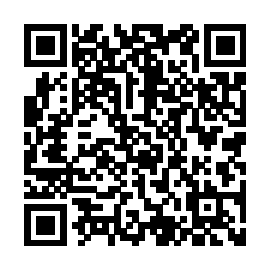土耳其、印尼兩國伊斯蘭教與國家關系的比較研究
Comparing State-Islam Relations in Turkey and Indonesia 土耳其、印尼兩國伊斯蘭教與國家關系的比較研究
Comparing State-Islam Relations in Turkey and Indonesia
土耳其、印尼兩國伊斯蘭教與國家關系的比較研究
Martin van Bruinessen教授
新加坡國立大學亞洲研究中心
時間:2013年5月24日星期五
19:30-21:30
地點:馬丁堂二樓講學廳
講座摘要:盡管穆斯林保守派占其人口大多數,亞洲與中東伊斯蘭人口集中的土耳其與印度尼西亞仍以世俗共和政體立國。兩個國家都誕生于武裝解放運動,其軍隊也一直承擔着維護世俗政治秩序的責任——直至最近才迫于形勢,有所轉變。兩國也發展出多少有些相似的伊斯蘭統治體制(通過官辦宗教學校與神學機構培養自由靈活的宗教精英以及遵從伊斯蘭法的裁決機構)。随着左翼政治的瓦解,伊斯蘭教組織成為兩國唯一重要的公民政治力量。八十年代末,政治經濟解放使得穆斯林保守組織重新影響到國家建設與公共話語,并導緻公共領域顯著的伊斯蘭化。但是,來自阿拉伯世界和南亞地區的伊斯蘭教徒、原教旨主義思想以及動員形式對兩個國家的影響卻各不相同。印尼将更加激進的阿拉伯化的伊斯蘭表述融入了自身的雜糅的穆斯林文化,而土耳其則自豪地保留了本國獨特的伊斯蘭風格,并将之設計入更大的伊斯蘭世界中。
嘉賓簡介:Martin VAN BRUINESSEN教授為荷蘭烏得勒茲大學與現代世界伊斯蘭研究國際機構(ISIM)現代穆斯林社會比較研究講座教授,2011年退休後,Martin Van Bruinessen教授仍在各大學繼續指導博士研究生。除精通西歐主要語言外,Martin Van Bruinessen教授還熟練掌握土耳其語和印尼語,并能讀說庫爾德語、波斯語。他的主要著作有Mullas, Sufis and Heretics: The Role of Religion in Kurdish Society (2000), Kurdish Ethno-nationalism Versus Nation-building States (2000), Sufism and the ‘Modern’ in Islam (co-edited with Julia D. Howell, 2007), Producing Islamic Knowledge: Transmission and Dissemination in Western Europe (co-edited with Stefano Allievi, 2011)
Comparing State-Islam Relations in Turkey and Indonesia
Speaker:Martin van Bruinessen
Time:19:30-21:30 Friday, May 24, 2013
Venue: Lecture Room, Second Floor, Martin Hall, South Campus, SYSU
Organizer: School of Sociology and Anthropology, SYSU
Prof. Martin VAN BRUINESSEN was the chair professor of Comparative Sudies of Modern Muslim Societies at Utrecht University and the International Institute for the Study of Islam in the Modern World (ISIM) until hs retirement in 2011, although he continues with PhD supervision there as well as at several other universities, Besides the major West European languages, Van Bruinessen is fluent in Turkish and Indonesian, as well as reads and speaks Kurdish and Persian. His major work includes Mullas, Sufis and Heretics: The Role of Religion in Kurdish Society (2000), Kurdish Ethno-nationalism Versus Nation-building States (2000), Sufism and the ‘Modern’ in Islam (co-edited with Julia D. Howell, 2007), Producing Islamic Knowledge: Transmission and Dissemination in Western Europe (co-edited with Stefano Allievi, 2011), and others including Indonesian publications
Abstract
Turkey and Indonesia, located at opposite sides of the main mass of Muslim populations of Asia and the Middle East, both were established as secular republics although conservative Muslims make up a large proportion of their populations. Both republics were born in armed liberation struggles, and the military have assumed a special role as the guardians of the established secular political order, from which they have only recently been forced to retreat. The two countries developed more or less similar regimes of governance of Islam (through state-sponsored religious schools and theological institutes aiming at the formation of a pliable and liberal religious elite, through state-sponsored fatwa bodies, etc.). Following the political destruction of the left (in 1965-66 in Indonesia; in the wake of the 1980 military coup in Turkey), organized Islam remained as the only significant civilian political force in both countries. Political and economic liberalization from the late 1980s onward allowed conservative Muslim groups to recapture influence in the state apparatus and make a notable impact on public discourse, resulting in a highly visible Islamization of the public domain. The countries have differed considerably, however, in their receptiveness to Islamist and fundamentalist ideas and forms of mobilization originating from the Arab world and South Asia. Indonesia has incorporated further Arabized expressions of Islam into its own mosaic of Muslim cultures, whereas Turkey has proudly guarded its distinctive styles of Islam and has projecting them into the larger world of Islam.

